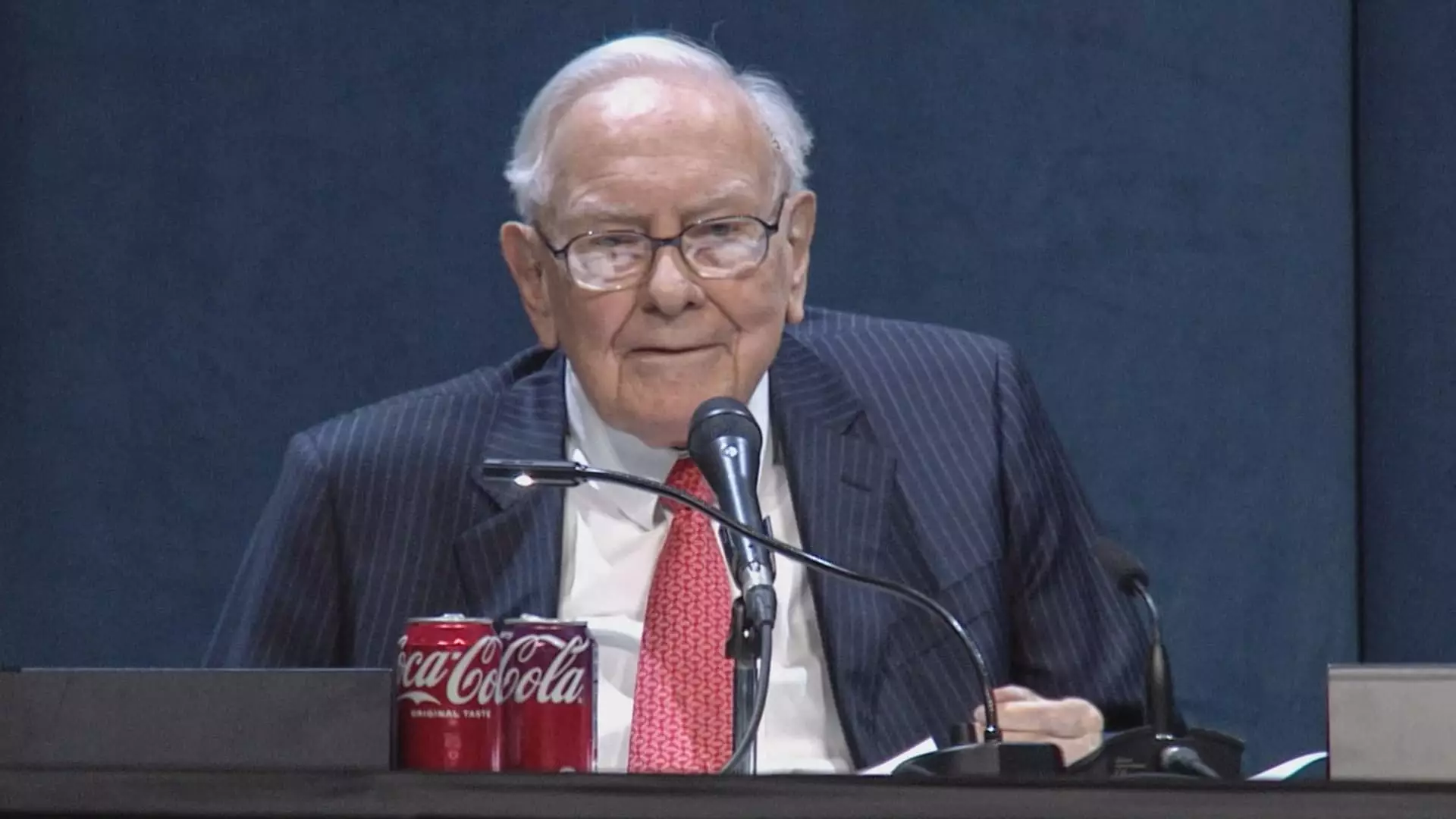Berkshire Hathaway’s latest earnings reveal a complex reality behind its traditionally robust facade. Despite a resilient history, the recent 4% decline in operating profits signals underlying vulnerabilities that cannot be ignored. The company’s overall health appears to be more fragile than the surface suggests, especially considering that one of its core segments—insurance underwriting—suffered a notable downturn. This diminishes the narrative of unassailable stability and hints at systemic weaknesses that could be exacerbated by ongoing geopolitical tensions.
In a broader economic context, Berkshire’s cautious stance towards tariffs is inherently telling. The conglomerate’s warning about the unpredictable consequences of international trade tensions underscores a critical flaw: reliance on a global trade system that appears increasingly volatile. While Buffett’s cash hoard remains high, the slight dip from record levels is less a sign of strength and more a reflection of strategic caution—a prudent move in uncertain times, yet also a potential indication that the company is bracing for continued turbulence.
Strategic Missteps or Environment-Driven Constraints?
Berkshire’s decision to reduce equity holdings for a 11th consecutive quarter, coupled with its avoidance of share buybacks at a time when markets have declined sharply, signals a hyper-conservative approach. This might be interpreted as a defensive tactic rather than entrepreneurial leadership. The company’s write-down of Kraft Heinz shares by $3.8 billion exposes the pitfalls of complacency in investments that once seemed promising. It raises questions about Berkshire’s capacity to adapt its portfolio amidst rapidly changing market conditions and whether its traditional investment strategies are still viable.
Moreover, the company’s emphasis on the potential adverse impacts of tariffs appears more reactive than proactive. Instead of leveraging its massive cash reserves to bolster or diversify its core operations, Berkshire seems to be waiting for the storm to pass—an attitude that could lead to missed opportunities. The resignation of Kraft Heinz board members and the potential spinoff plans hint at internal struggles to stay relevant in a shifting consumer landscape. These developments suggest a company caught in a transition, struggling to navigate a landscape marred by trade wars and regulatory uncertainties.
A Shift in Leadership Yet Lingering Uncertainty
While Berkshire’s leadership appears poised for transition—Greg Abel set to assume CEO responsibilities—fundamental questions remain about the organization’s ability to withstand external shocks. Buffett’s continued chairmanship provides continuity but also signals that unless strategic and operational reforms are embraced, the conglomerate might face protracted difficulties. The near-record-high cash reserves give Buffett room to maneuver, but without decisive action, these assets risk becoming passive hoards rather than leverages for future growth.
Berkshire Hathaway’s cautious approach in 2025—marked by minimal stock repurchases and a selective portfolio—could be its saving grace or its Achilles’ heel. In an era where agility and foresight are paramount, the company’s conservative posture risks underperformance. It’s a precarious balance: remaining cautious in a turbulent market might preserve capital, but it could also cause Berkshire to fall behind more nimble competitors capable of capitalizing on disruption.
In essence, Berkshire Hathaway’s recent financial data and strategic moves expose a conglomerate at a crossroads. The company’s traditionally steadfast reputation is now shadowed by uncertainties that demand more than just patience. To truly turn this moment into an opportunity, Berkshire will need to challenge its conservative instincts and embrace a more dynamic, forward-looking approach. Without it, even Warren Buffett’s legendary prowess may not be enough to stave off the slow decline hiding within the numbers.

